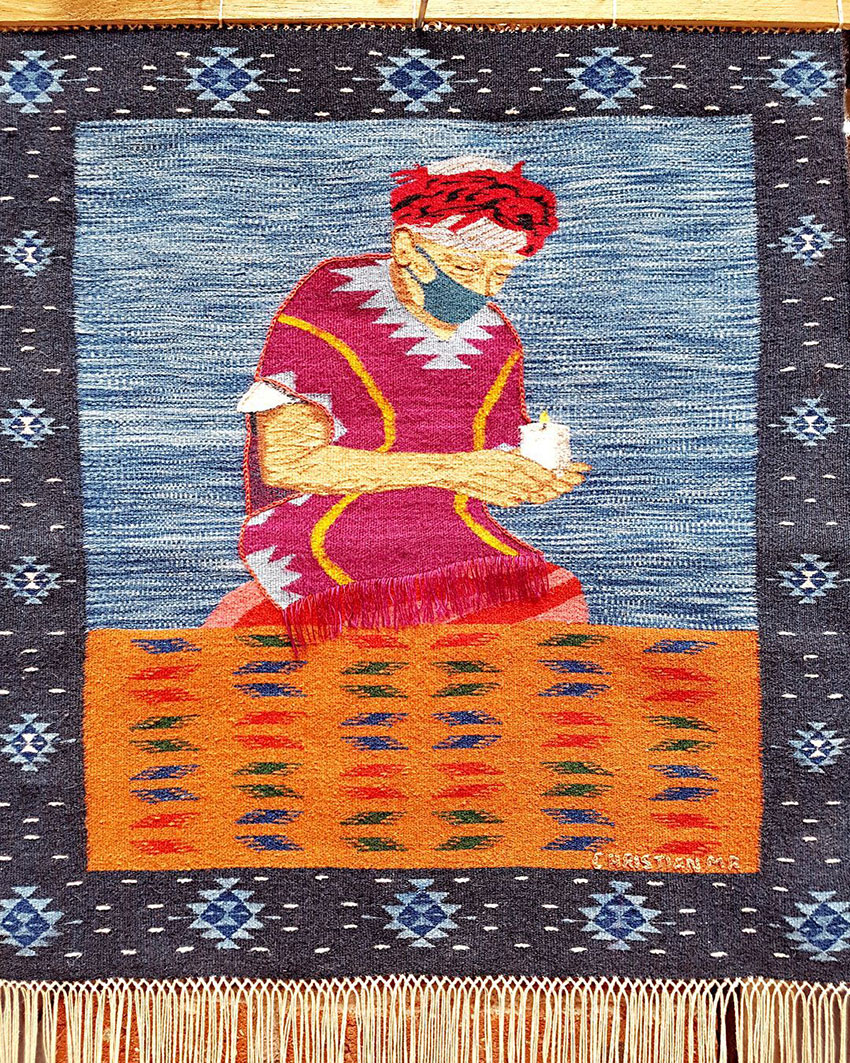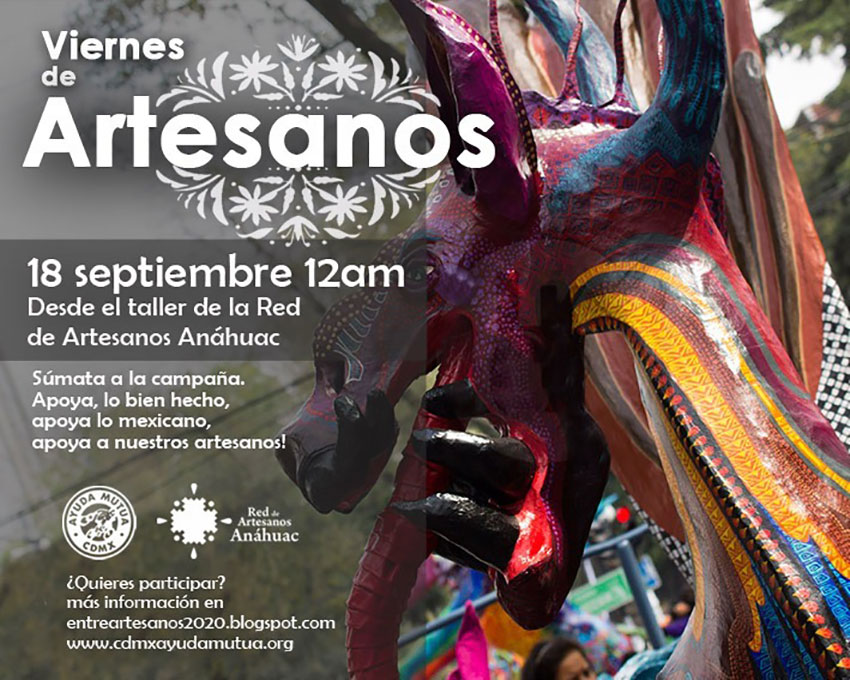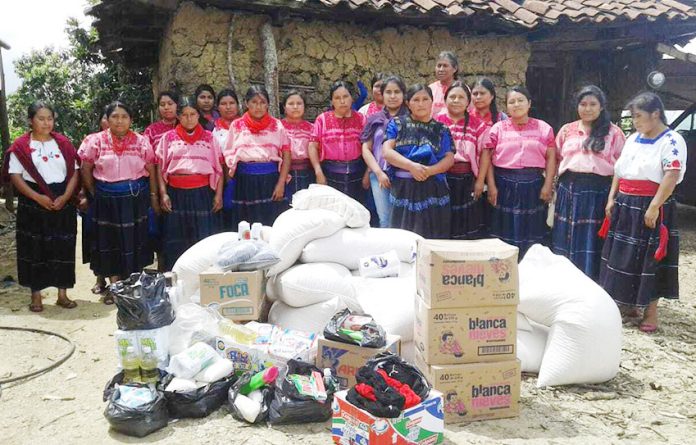It is almost cliché now to say that the pandemic has hit people hard, often those who can least afford it.
These include Mexico’s artisans, whose centuries-old traditions today depend on the tourism industry and the festival calendar. Who knows when the festivals will resume and when the people will decide it’s safe?
To make things even worse, the last months have shown just how useless Mexico’s institutions dedicated to handcrafts can be. Museums and government culture agencies shut down completely or are operating only enough to justify their own existence.
Fortunately, some help has come from individuals and organizations who care about those who create fine works in wood, clay, leather, metals, and more in some of the poorest areas of the country.
Although there was a desire to help with the immediate needs for food and rent money in the first weeks, the truth was that the only people who could help artisans were family members (sometimes) and those organizations dedicated to such needs for the general public.

But help targeting artisans has begun to materialize. The first were simple fundraisers such as a GoFundMe by handcraft collector Alan Goldberg and a fundraiser by the Los Amigos de Arte Popular, each raising US $20,000. One very notable early effort was the 5 million pesos spent by the Alfredo Helú Foundation to buy handcrafts from 156 families in Oaxaca and some other states.
Soon after, it seemed that everyone, craftsperson or not, was making novelty face masks as they are one of the few products that sell.
As Goldberg noted in an interview, such efforts are only a “band-aid.” The baseline problem is that artisans have no way to sell because they have been almost entirely dependent on the tourist market and selling to middlemen who are themselves often beholden to tourism. Mexican artisans have not been very internet savvy, even though much better prices can often be found outside Mexico than within.
As the months wore on, efforts began to shift to longer-term solutions, almost all internet-related. Goldberg’s GoFundMe morphed into a Covid-19 themed art competition, displaying the entry online.
The Friends of Oaxacan Folk Art (FOFA), based in New York, did something similar. They offered grants to past winners of previous competitions to make pieces related to the pandemic, which were exhibited online on their Instagram page. Many sold the pieces that were shown, even though FOFA does not directly get involved in sales.
The Feria Maestros de Arte is an organization that for 20 years has been focused on holding one of Mexico’s best fine handcraft fairs in Chapala, Jalisco. With such a narrow focus, the cancellation of the November 2020 event has been almost an existential crisis. Worried about how the accepted artists for this year would cope, they have tried their hand at selling online.

Taking a cue from Stephanie Schneiderman’s six-week commercial project called the Tuesday Textile Tianguis, they set up a weekly sale on Facebook called the Monday Bazaar. For the first three weeks, sales were good, but they have since dropped significantly. They are experimenting with ways to engage the public to bring customers in.
Another sales effort is a collaboration between a mutual aid society created for the pandemic, Ayuda Mutua CDMX, and Red de Artesanos Anáhuac, a Mexican organization that promotes the work of Mexico City-based artisans. Ayuda Mutua previously had a sale of fine art on their website, which helped some artists sell and raised funds for their food basket program.
The version for handcrafts is called the Solidarity Market CDMX with pages in English and Spanish. After the run on the Ayuda Mutua website, Red de Artesanos plans to shift the developed pages and payment processes for their own site for future development.
Goldberg is also developing a website with the purpose of giving artisans a place online to reach national and international markets, which should be ready by the end of the year.
Thinking even longer term, FOFA decided to offer online classes and mentoring in online marketing and sales targeting mostly younger artisans in Oaxaca. The idea here is to give individual artisans the tools to create their own presence online, not only teaching how the technologies work, but by having marketing experts help them develop their branding, customer service and the like. So far, half of the trained artisans have been able to sell at least one piece to the United States.
The shift to online sales is a struggle for both artisans and projects. Those that seem to be doing immediately well have taken advantage of online audiences that they already had cultivated. Schneiderman stated her initiative resulted in about 800,000 pesos in sales to artisans in Mexico in only seven weeks by taking advantage of the audience she had for her tour business.
It is a similar story for FOFA and Ayuda Mutua. However, for those who are starting from scratch, the shift to online sales is still an ongoing struggle.
The experimentation with online marketing is an important step for the handcraft industry in Mexico. It is not easy for either the artisans or organizations as so much work is involved before any benefit is seen. With travel still not recommended by most experts, however, these efforts do allow those of us who love Mexico a way to support its hardworking people.
Leigh Thelmadatter arrived in Mexico 17 years ago and fell in love with the land and the culture. She publishes a blog called Creative Hands of Mexico and her first book, Mexican Cartonería: Paper, Paste and Fiesta, was published last year. Her culture blog appears weekly on Mexico News Daily.
